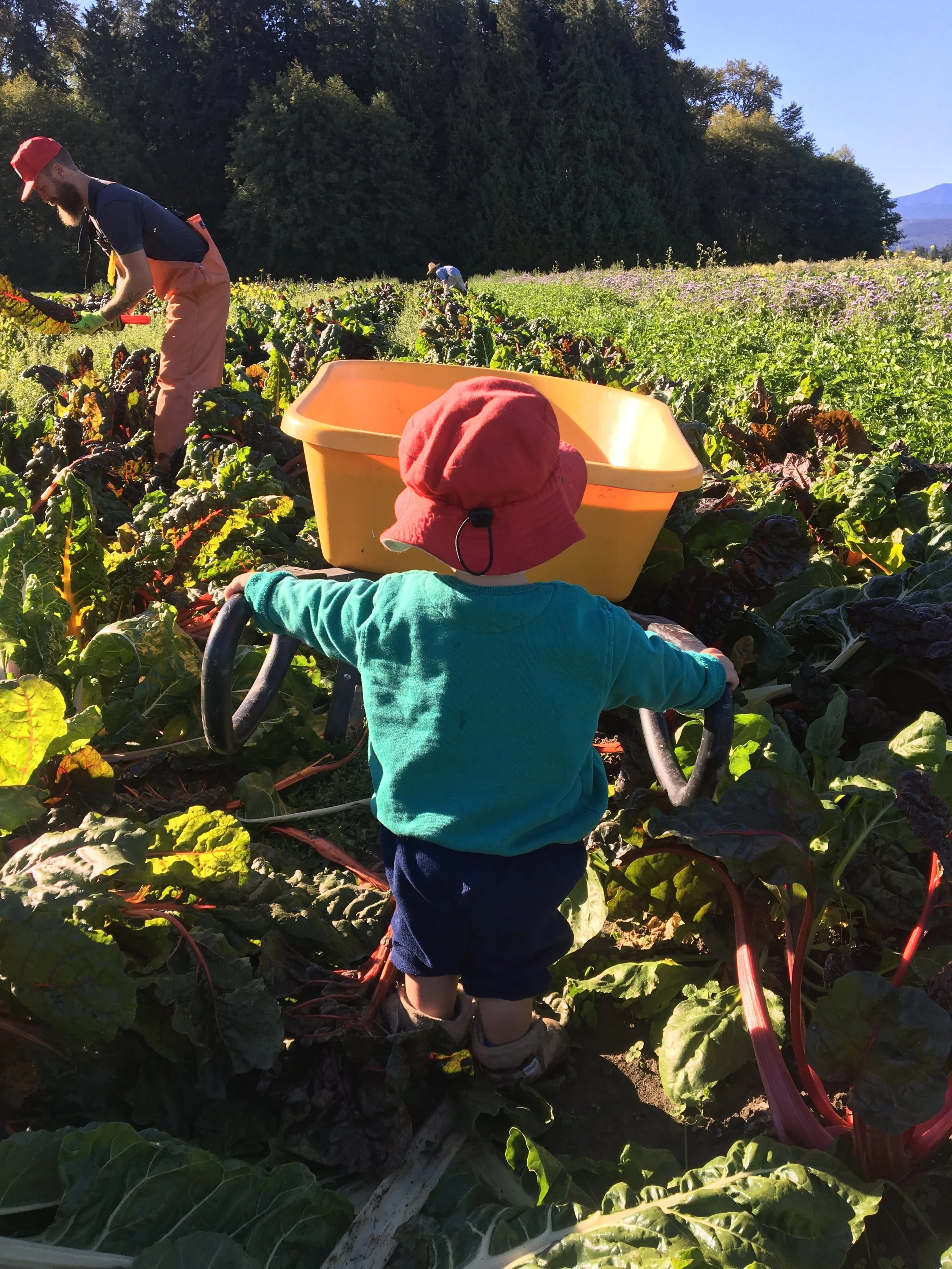Earlier this week, Noah and I had dinner with some friends of ours down the road. The two young daughters, 8 and 12, set the table as many kids are in the practice of doing. After dinner, they cleared plates, made milk bottles for the baby lambs, fed the lambs, picked the hooves of four horses, and gave hay to the rest of the animals. Then they shared with us the ice cream that they made earlier that day.
Their mom calls it “growing up with grit.” From someone who grew up in the suburbs of NYC, I was impressed.
These girls are doing more than just after dinner chores. They take care of the whole yard of animals. They help halter train their cattle so they can “show” them, they raise up baby goats and lambs, care for and ride their horses, and cook meals for their family. They are learning responsibility, determination, perseverance, observation, and diligence- and love it!
At our farm, there is one kiddo growing up farm-style. Perhaps, in the future, we will see more children surrounded by all the lessons that can be learned when growing up immersed in the natural world, caring for animals, growing food, and working hard.
But, you don’t have to be a child to learn these life lessons from farming. All of us at River Run are in the same course of study as our young friends down the road. These farming challenges often transform into lessons and if we are ripe for it, into either strength or wisdom. The dedication that growing plants and animals require is unrelenting. When you sign up for this, you sign up 100%. And so we learn how to prioritize other lives besides our own. We learn how to step up to the challenges and study the possible solutions. We learn how to show up to harvest lettuce at 6am, daily. Or how to to work fourteen hour days for a week straight just to catch up with all the field work. We learn to put the needs of our crew mates in front of our own needs.
Then there are the lessons we learn about life cycles. Whether it is the short life of annual vegetables, or the longer lives of the cattle and horses, we are faced with continual loss. We learn the lessons of impermanence. We have to face the fact that all life comes, goes, and transforms.
The farm gives us the opportunity to learn the lessons of resourcefulness. Balancing the never ending wish list with the tight budget, we learn to prioritize and make do with what we have. And when we are faced with an urgent situation, we learn to improvise. Luckily we have a farm role model, Adam, who is learned in the way of resourcefulness and improvisation. We all look to him and his apocalyptic junker mentality to keep the ship afloat.
In my mind, the most valuable farming lesson is learning how to observe. There is so much to watch and take note of on the farm. Things change fast, and a farmer’s mind always needs to be in observation mode to stay on top of the many things going on. During chores, the younger of the two girls wanted to check on her goats and show them off to us while we were all around the yard. It was 10pm, we were out there with headlamps and the goats were standing motionless as we came in. Within half a minute, the girl tells her mom that the black goat is limping. I didn’t even see that goat move, how can she tell? I was thinking. I was looking at the goat, waiting for it to move so I could see it limping and then after some time of staring, it took a step. It limped. Then I noticed it was just barely holding one of its back hooves off the ground. It was so subtle, I couldn’t believe she had made that observation so quickly. These farmers have some years on me, I thought. I am inspired.
-Anna

